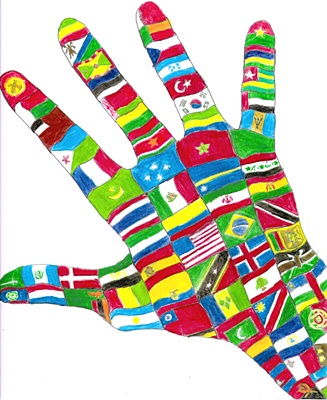All Nonfiction
- Bullying
- Books
- Academic
- Author Interviews
- Celebrity interviews
- College Articles
- College Essays
- Educator of the Year
- Heroes
- Interviews
- Memoir
- Personal Experience
- Sports
- Travel & Culture
All Opinions
- Bullying
- Current Events / Politics
- Discrimination
- Drugs / Alcohol / Smoking
- Entertainment / Celebrities
- Environment
- Love / Relationships
- Movies / Music / TV
- Pop Culture / Trends
- School / College
- Social Issues / Civics
- Spirituality / Religion
- Sports / Hobbies
All Hot Topics
- Bullying
- Community Service
- Environment
- Health
- Letters to the Editor
- Pride & Prejudice
- What Matters
- Back
Summer Guide
- Program Links
- Program Reviews
- Back
College Guide
- College Links
- College Reviews
- College Essays
- College Articles
- Back
Langston Hughes
The Harlem Renaissance was a time in the 1920s and 30s where many black literary artists started to publish lots of pieces. Writers involved would often base their works on the challenges they, along with their race as a whole, had to overcome, and may still have been overcoming. One such writer was the poet Langston Hughes.
James Mercer Langston Hughes was born in 1902 in Joplin, Missouri, but spent most of his adult life living in Harlem, New York. There, Hughes created poems that showed his opinions on the hardships that he, as well as others of his race, had to endure in the time period. He used this to both turn the dark past into something positive, and to inform people of how unfairly blacks (along with other “lesser” groups) were treated. The Harlem Renaissance’s ideas played a very large part in Hughes’ messages. For example, his poem “I, Too” displays an analogy of how, despite being given a hard time, blacks in the Harlem Renaissance were able to become popular with their arts.
The Harlem Renaissance affected the world enough that modern black culture in America can mostly be traced back to it. This is because it carved out a niche for freed slaves, their ancestors and others to become part of the society and have an actual influence. Langston Hughes in particular had an impact on his readers, both then and now. He emphasizes how all races should be treated equally and have equal freedom, especially in America, the alleged land of the free. This helped people to see how racism was wrong, and still could help people today.
In conclusion, Langston Hughes helped to lead the Harlem Renaissance, which carved out a culture for the black population. He used his poetry to enforce his position against racism of any sort, as well as showing the world what the lifestyle in Harlem was like. Without his influence, much of America’s views on equality, and even culture as a whole, would be very different, probably for the worse.

Similar Articles
JOIN THE DISCUSSION
This article has 0 comments.
